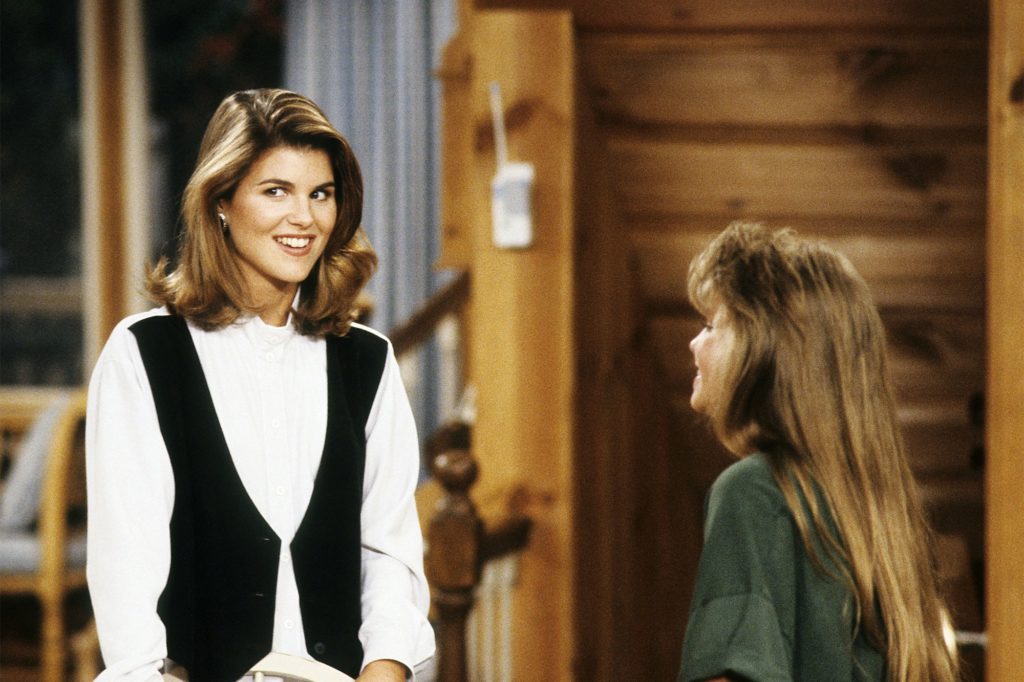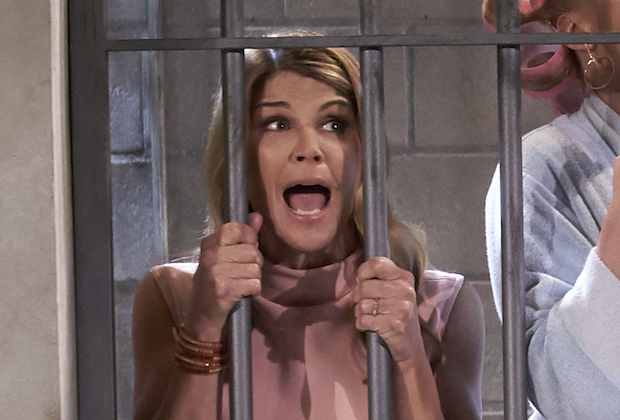Earlier this year a bizarre news story broke about Hollywood celebrities bribing officials to admit their children into top universities. The most famous name attached to the scandal is Aunt Becky on “Full House,” IRL the ever-pretty actress Lori Laughlin. She and her husband Mossimo (1990s fashion icon) apparently paid their child’s way into the University of Southern California. She wasn’t the only one!

Let’s be clear here. We all had to apply to college, and then we hoped to be accepted. Once we were accepted, we had to figure out how to pay for that college education (student loans, savings, scholarships).
But what we’re talking about here is rich and powerful people who fronted as much as $100,000 $500,000 to get each child admitted to prestigious universities. How? Insiders and low-life university officials schemed together to elevate ordinary students to student-athletes, making it easier for the student to be accepted. Students were accepted as members of the university’s crew team without ever having rowed a boat. You can’t make this stuff up.
Some parents pled guilty, others did not. Aunty Becky is standing proud as innocent, and her fate is yet to be determined. ?

Once the novelty of the story wears off, we’re left with an uncomfortable reality. Some people have it easier than others.
This is no surprise, and in general terms, it is not wrong. My wife and I work hard to raise our children right, and we hope that life will be easier for them because of that.
But there are clear examples when there is an injustice, and it’s unfair no matter how you look at it. When Lori Laughlin’s daughter was admitted to USC, that grabbed up a spot in campus classrooms that should have gone to a more deserving student. This should bother you. That child could be your child.
But there’s a deeper problem here. When you rig the system–we all lose. Our culture loses. Our economy loses. Our country loses.
American Stories
As we approach Independence Day, I feel compelled to write about the competitive spirit, and how important it is that we, as individuals, and we, as a nation, keep this spirit alive. I’ve even made dorky videos about how desk workers can be inspired by professional athletes.
I believe that the best companies and economies are built on individuals who win because they worked hard, competed well. These individuals bring grit, brilliance, and tenacity to work each day.
This is an easy story to tell because so many of us believe in this American Ethos. Everyone who arrives at success will attribute their fortunes to hard work and innovation. It’s almost the only story that we know how to tell: “I earned this!”
⬆️ If you are with me here, then you have to be with me here too. ⬇️
Every day, people choose to stop playing fairly, and instead they choose to rig the system. In Washington, rigging the system happens on the right with Republicans, and on the left with Democrats. In the workplace, rigging the system happens at the bottom with labor unions. And it happens at the top with big corporate monopolies. All day every day, some group is trying to rig the system.
These groups share the same sub-human instinct to grab the most for themselves, and then let the rest of us suffer the consequences. They institutionalize their greed with laws and regulations that keep away competition.
In each case, these groups lose their healthy competitive spirit that once made them shine so bright. Their greed leaves them a shell of what they used to be:
- Politicians are elected by their own people, chosen to travel to DC to represent their concerns. Their people may’ve put the politicians in office, but lobbyists and their $$$ keep them there. Politicians accept large campaign contributions in exchange for favors and privileges. They morph into brokers of power and influence.
- Labor unions began amidst the fury of industrialization with the goals of creating safe, dignified workplaces where workers could earn a fair wage. Today, labor unions demand terms that benefits the workers alone—employers and customers be damned! Even worse, unions are unwilling or unable to rid themselves of the worst in their union. (bad stuff)
- Young companies surge because they made something exceptional. These companies grow into large, corporate giants with intense pressure from shareholders. To defend their profits, they push out competition by any means necessary—usually with new laws and regulations. They don’t have incentive to innovate and provide a better service to their customers. Their only goal is to become a bigger monopoly.
We all lose because of it. And if rigging the system becomes the norm, our economy will crumble. Certainly, we should work together to un-rig the system, right?
So today is June 20, 2019. Campaigns for the 2020 Presidential Election will soon begin. Social Media will once again become a war zone, just like it was 4 years before. Lines will be drawn. Emotions will flare. It will be you against the world.
In the middle of this chaos, don’t forget who you are. Hold yourself to the highest standard. Hold your own people accountable. Expect that your political party, your company, your crew—whatever it is—hold them to the highest standard. Don’t wait for “them” to point how you’ve unfairly rigged the system. Live beyond reproach.
Call me an idealist, call me naive. But I choose to believe that when we work hard and play fair, everyone wins. ??
PS. At Smith House, we like to win over and keep clients because we are good at what we do, not because we have rigged the system and forced clients to come back. So when we begin website projects, we help our clients set up their own account with a web host so they don’t have to rent space from us to host their website. We do the same for Google Analytics, Facebook Pixel, etc. We want them to have full access and full control of their data and analytics. For our branding projects, we don’t put greedy IP restrictions on usage. We share every. EPS file so that they or anyone else that they want to hire can easily drop their fresh new logo into any marketing piece.
PPS. Struggling with the idea of fairness? You owe it to yourself to listen to this podcast…
"Why is my life so hard?" Most of us feel we face more headwinds and obstacles than everyone else — which breeds resentment. We also undervalue the tailwinds that help us — which leaves us ungrateful and unhappy. How can we avoid this trap?

